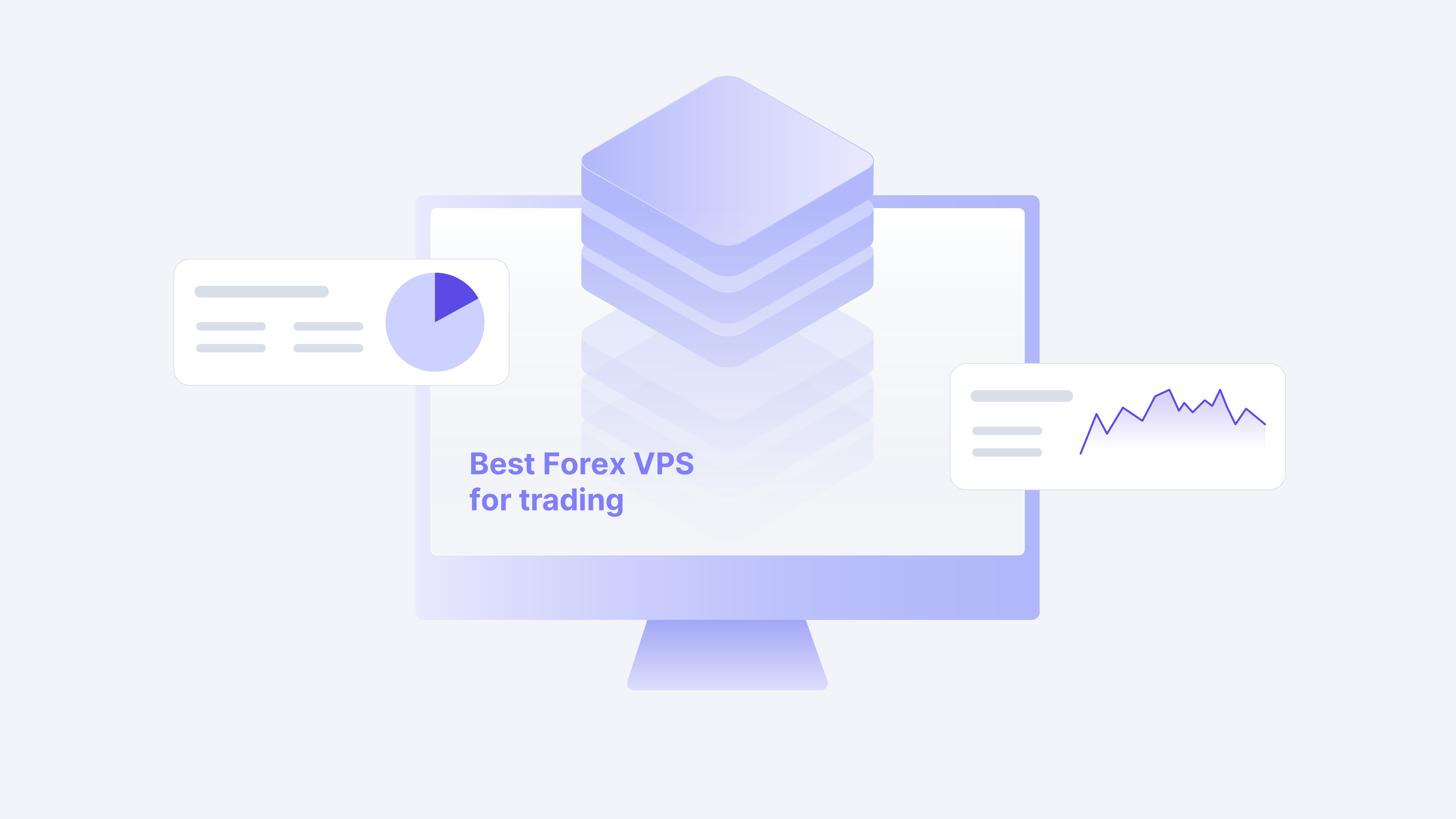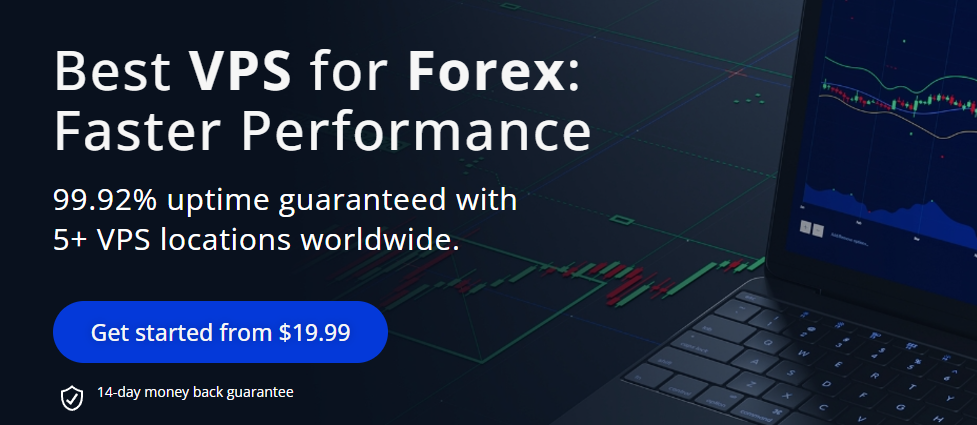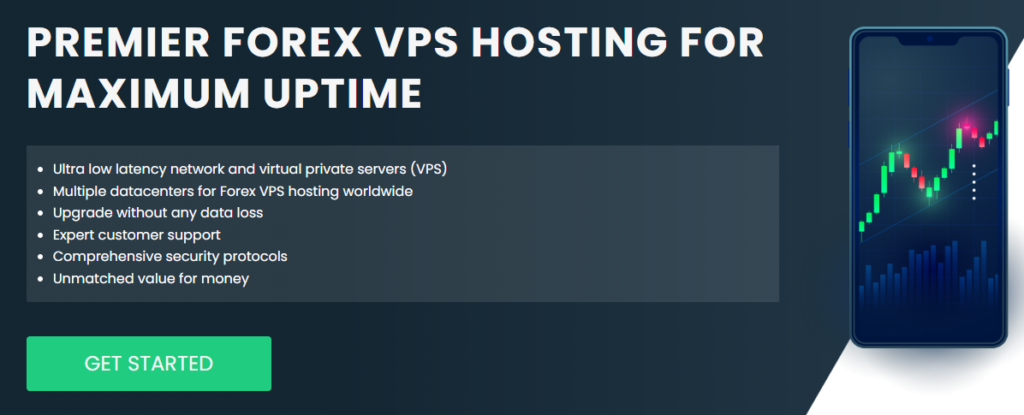
Accept crypto with CoinGate
Accept crypto with confidence using everything you need in one platform.
Where to Get a Crypto-friendly VPS for Forex Trading 2025?

In Forex trading, every second counts. Imagine a trading solution that keeps your platform running 24/7, minimizes downtime, and boosts trade execution speed.
These are the qualities of a Forex VPS (Virtual Private Server) hosting—a dedicated solution designed for traders who need stability, speed, and reliability in every trade.
This guide reviews three top Forex VPS providers that accept cryptocurrency payments via CoinGate —VPSforFX, FXVM, and VPSForexTrader. Each of these services is tailored to meet the unique demands of Forex traders.
If you’re looking for low latency, high performance, and cost-effective plans, these providers offer solutions that can support your trading needs, all while offering the flexibility of paying with crypto.
Let’s dive into the details and discover which Forex VPS provider is the best fit for your trading goals. If you want to discover more crypto-friendly options for VPS, check out the top 7 VPS that accept crypto.
What to Look for in a Forex VPS
Choosing the right Forex VPS can significantly impact your trading performance. Here’s a checklist to help you select a VPS that’s tailored to your trading needs:
- Low Latency: Opt for a provider with servers near your broker’s data center. Even a few milliseconds of latency reduction can make a difference, especially if you’re using high-frequency trading or scalping strategies.
- High Uptime Guarantee: A Forex VPS should guarantee at least 99.99% uptime, ensuring that your platform stays operational and avoids missing critical trades.
- Dedicated Resources: Look for a VPS with enough processing power and memory for smooth performance, especially if you run multiple EAs or platforms. For standard trading, 1-2 GB of RAM is often sufficient, but complex strategies may need 4+ GB.
- SSD Storage: SSD storage enhances data access speed, which is particularly beneficial for real-time trading.
- Security Features: Ensure your VPS has robust security, including DDoS protection, firewalls, and data encryption. Also, look for two-factor authentication (2FA) for secure access.
- Compatibility with Trading Platforms: Choose a VPS that’s optimized for your trading software, like MT4, MT5, or any other platform you rely on. Many Forex VPS providers offer Windows-based servers, as MetaTrader platforms are tailored for Windows.
- Remote Access and Flexibility: Forex VPS allows you to access your trading setup from multiple devices. Also, look for a provider offering a dedicated IP address for secure, hassle-free logins from anywhere.
- Automatic Backup and Recovery: Some VPS providers offer automatic backups or restore points, which can help protect your trading environment in case of technical issues or data loss.
- Reliable Customer Support: Look for 24/7 customer support. Prompt assistance is crucial if issues arise during live trading.
Top 3 VPS for Forex Trading
Here’s an expanded look at each of these Forex VPS providers: VPSforFX, FXVM, and VPSForexTrader, highlighting their features, pricing, and unique benefits for Forex traders.
1. VPSforFX

VPSforFX is a Forex VPS provider tailored specifically for traders who use automated systems or Expert Advisors (EAs) on platforms like MetaTrader (MT4/MT5) and cTrader. Here’s what sets VPSforFX apart:
- Global Data Centers: VPSforFX offers multiple data center locations, including New York, Hong Kong, Amsterdam, and London. This allows traders to select a server close to their broker’s data center, minimizing latency and maximizing trade execution speed.
- Hardware & Performance: Their servers run on AMD EPYC processors paired with DDR4 ECC (Error Correcting Code) RAM and NVMe SSD storage. This setup enhances speed and stability, essential for traders running multiple terminals or intensive automated strategies.
- Pricing: VPSforFX offers plans starting at $19.99 per month, making it accessible for both beginner and advanced traders. They also have various tiers based on the needs of the trader, so you can scale up as your trading requirements increase.
- Trial Period: They provide a 14-day money-back guarantee, giving traders the flexibility to test the service and see how it performs with their broker and trading strategies.
- Customer Support: VPSforFX has a responsive support team with experience in Forex trading, which can be particularly beneficial if you face issues related to latency or platform compatibility.
For traders looking for a blend of affordability, performance, and location flexibility, VPSforFX offers a solid package tailored to the needs of Forex traders.
2. FXVM

FXVM is a well-known VPS provider focused exclusively on Forex trading. It’s designed for traders who prioritize low-latency connections and high reliability in their VPS service. Here are the highlights of FXVM’s offerings:
- Strategic Server Locations: FXVM has servers in London, New York, Chicago, and Tokyo, targeting major financial hubs and broker data centers. These locations are ideal for Forex traders using brokers with servers in these cities, as proximity significantly reduces trade execution time.
- Trading Platform Optimization: FXVM supports popular trading platforms, including MetaTrader (MT4/MT5) and cTrader. They also offer one-click installation for these platforms, ensuring you can get your trading environment set up quickly and smoothly.
- Backup and Uptime: FXVM provides automatic backups, which means your data and trading settings are secure and can be restored if needed. They also offer a 100% uptime guarantee, critical for traders who rely on automated strategies that require constant connection.
- Flexible Plans: FXVM’s plans start at around €19 per month, and they offer various options based on trading needs. FXVM frequently offers promotions, such as a 15% discount on all plans with the code ‘FXVM4LIFE,’ making it an attractive choice for traders looking for a quality VPS at a reasonable price.
- Customer Support and Community Reputation: Known for its strong customer support, FXVM has a reputation for being responsive and knowledgeable about Forex-specific issues. Many traders favor FXVM for their reliability and efficient handling of latency and uptime concerns.
FXVM is particularly suitable for traders who use high-frequency or low-latency strategies, as it’s built to maintain constant uptime and fast connections.
3. VPSForexTrader

VPSForexTrader is a reliable VPS service focused on low-latency connections and high resource availability, designed to support demanding trading environments. Here’s a detailed look at what VPSForexTrader provides:
- Location Options for Low Latency: VPSForexTrader operates data centers in London, Amsterdam, New York, and Vilnius, enabling traders to select a server closest to their broker. This setup helps reduce the latency between your VPS and broker, optimizing execution speeds.
- High-Performance Hardware: The servers at VPSForexTrader are equipped with AMD EPYC CPUs, ECC RAM, and NVMe SSDs, which allow for faster data processing and higher stability. These resources are beneficial for traders who operate multiple terminals or run complex trading algorithms that require additional CPU power.
- Resource Flexibility: VPSForexTrader’s plans allow traders to scale resources as needed, starting at $29.99 per month. They offer various levels of CPU power and memory, so traders can choose a plan that best suits their trading volume and strategy. There’s also a 40% discount for traders who choose annual plans, which can make it more affordable for long-term use.
- Trading Platform Support: VPSForexTrader supports multiple terminals, such as MT4 and MT5, making it ideal for traders who want to run several accounts or manage multiple strategies simultaneously.
- Customer Support: VPSForexTrader offers solid customer support with Forex-specific expertise, helping users troubleshoot platform issues or latency concerns effectively. This support is available 24/7, which is beneficial for traders in different time zones.
VPSForexTrader is best suited for advanced traders who need high-performance resources and multiple server locations to support a high volume of trades and intensive algorithms.
Comparing the Three Providers
Each of these providers has unique strengths:
- VPSforFX is ideal for cost-conscious traders looking for a reliable entry into Forex VPS, offering excellent performance and server options at a competitive rate.
- FXVM specializes in low latency and reliability, with a strong uptime guarantee and a wide range of server locations, making it ideal for high-frequency traders.
- VPSForexTrader targets advanced users who need high-performance hardware and resource flexibility, especially useful for traders running multiple accounts or EAs.
When choosing a Forex VPS provider, your choice will depend on your trading strategy, budget, and specific latency requirements. Each of these providers offers different strengths, but all focus on providing a VPS environment tailored for Forex traders.
Cost Considerations and Broker Partnerships
Forex VPS solutions vary in price depending on the level of resources and proximity to trading servers. Many brokers also offer free or discounted VPS access to traders who meet a specific trading volume, so check with your broker to see if you qualify.
You might want to consider one of the best VPS providers if the list above does not fit your needs.
Why Use a Forex VPS?
A Forex VPS serves as a remote server tailored for traders who want to ensure uninterrupted and optimal performance for their trading platforms, like MetaTrader 4 (MT4) and MetaTrader 5 (MT5).
Unlike trading on your personal computer, a Forex VPS keeps your trading applications running continuously, even if your internet goes down or your computer is turned off. Here’s how it helps:
- 24/7 Uptime and Stability: With a Forex VPS, you can run automated trading strategies and Expert Advisors (EAs) round-the-clock without interruptions. This is essential for capturing trading opportunities in a global market that never sleeps.
- Minimized Latency: Many Forex VPS providers offer low-latency connections by locating their servers close to popular brokers’ data centers, reducing trade execution times significantly. This feature is critical for strategies like high-frequency trading or scalping, where milliseconds can impact profitability.
- Remote Access Anytime, Anywhere: A Forex VPS allows you to access your trading platform from any device—desktop, laptop, tablet, or smartphone—without needing to keep a personal device running. It also provides a consistent trading environment, making remote management easy, wherever you are.
- Enhanced Security: Security is paramount in Forex trading, and Forex VPS providers typically offer robust security measures like firewalls, DDoS protection, and data encryption. A VPS provides an isolated environment, adding an extra layer of security over public networks.
Key Differences Between Forex VPS and Regular VPS
While both Forex and regular VPS solutions offer remote server capabilities, a Forex VPS is specifically optimized to meet the unique demands of Forex trading. Here’s how:
- Latency Optimization: Forex VPS is fine-tuned for low latency to broker servers, enhancing trade execution speeds. Regular VPS solutions, while functional, typically lack this proximity and latency focus, which can result in slower trade times.
- Platform Compatibility: Forex VPS providers often pre-configure their servers for MT4, MT5, and other trading software, enabling one-click installations. Regular VPS solutions usually don’t offer this trading-specific setup, requiring more manual work on your end.
- Reliability and Uptime: Forex VPS providers understand the critical nature of trading continuity, often guaranteeing 99.99% uptime. Regular VPS services may not emphasize the same uptime standards, which could affect trade consistency.
- Resource and Security Customization: Forex VPS plans are tailored to support trading needs, with high-performance CPU, RAM, and SSD storage to handle complex algorithms and multiple accounts. Security features like DDoS protection are commonly included in Forex VPS plans but may be limited or optional on standard VPS.
Getting the Most Out of Your Forex VPS
Once you’ve selected a Forex VPS, here are some tips to maximize its potential:
- Regular Resource Monitoring: Track CPU, RAM, and storage usage to ensure your VPS isn’t overburdened, which could slow down trade execution.
- Periodic Reboots: Rebooting your VPS on a weekly or monthly basis can refresh the system and help avoid minor lags or issues from continuous operation.
- Test Latency and Speed: Measure the latency from your VPS to your broker’s server to ensure optimal performance. Some VPS providers offer tools for this purpose.
- Backup and Restore: Set up automatic backups or regular snapshots of your trading environment. If something goes wrong, you can quickly restore your setup without losing time or critical data.
Forex VPS as a Game-Changer
A Forex VPS can be a vital tool for traders who rely on automated trading or want a consistent, secure, and low-latency environment.
By focusing on uptime, latency, security, and trading platform compatibility, you can ensure your Forex VPS setup supports a seamless trading experience. Whether you’re a beginner or a seasoned trader, a Forex VPS offers stability, speed, and a competitive edge in the market.
Ready to unlock your trading potential? Selecting the right Forex VPS could be the first step toward a more reliable and successful trading journey.
Thinking of accepting cryptocurrency payments in your business like these VPS providers do? Sign up for CoinGate.
Accept crypto with CoinGate
Accept crypto with confidence using everything you need in one platform.

